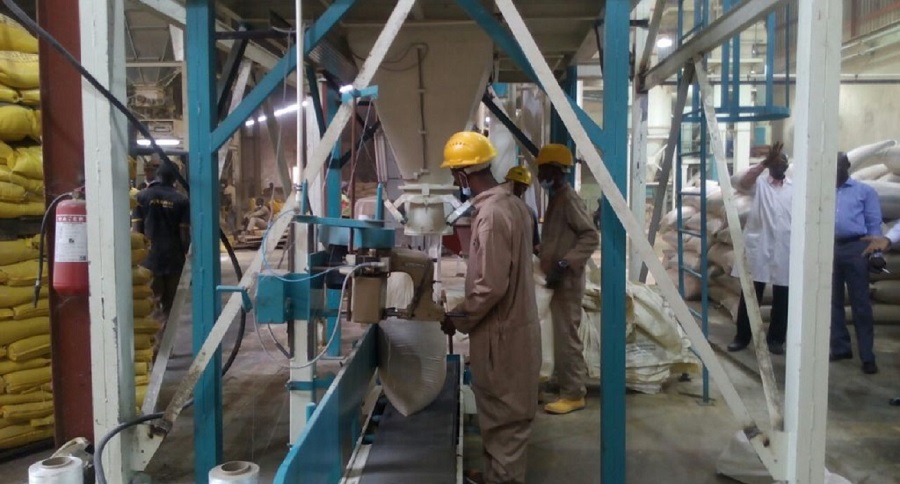There are many companies in Nigeria some people may never know are listed on the Nigerian Stock Exchange (NSE). Even though they carry out equally important economic activities like the more popular ones, these companies are often overshadowed by the bigger names, particularly the NSE 30.
Another reason some small-cap companies are not quite popular is because they are not always in the news. Even when they are, they do not ruffle as much feathers as their bigger counterparts.
Despite their relative obscurity, some of these companies have been around for quite a while, carrying out their businesses, making money, expanding operations, and recruiting when the need arises. One of such companies – Livestocks Feeds Plc – is the focus of this week’s Nairametrics company profile.
While UAC of Nigeria plc is generally known to be a household brand in providing consumables (food, snacks and dairies), the company has a subsidiary dedicated to manufacturing healthy and nutritional products for animals.
The subsidiary – Livestock feeds plc – was established in 1963, and has survived almost 60 years producing feeds for poultry, pigs, and cattle. Its products range from Chick mash, Aquamax fish feed, layer mash, grower mash, Broiler starter, Broiler finisher.
Business model
Incorporated in 1963, the initial aim of this company was to address the importations of such feed-products into Nigeria by Germans and Dutch.
It started out with its first 5MT/hr was installed in Ikeja, and in subsequent years, a 4MT/Hr mill was installed in Aba, and then 3.5MT/hr installed in Kaduna. Due to population growth and increased urbanisation, there was an increase in the demand for poultry products, directly impacting the demand for feeds. To keep up, the company upgraded the milling output to 10MT/hr automatic machines at Ikeja, Aba and Benin city between 1983 and 1985.
On April 1, 1978, the company was listed on the Nigerian Stock Exchange.
Livestock has further expanded capacity over the years and even explored the Franchise business marketing system during its boom period, when it had more than half of the Nigerian market share for animal feed.
Over the years, the company has modified its business model to compete favourably with new entrants into the market. Livestocks feeds now adds delivery services to its customers, bringing the products (poultry, pig, and cattle rations, meat cubes, and pallets) to them in regular rations or customised rations based on the clients need.
Ownership and management
In the mid to late 90s, Pfizer divested its interest in Livestocks feeds and it was immediately acquired by Adset Limited through an MBO. By the turn of the century, First Capital Trust Limited replaced Adset Limited as the core investor in the revitalised company, and Cashcraft Asset Management became the 2nd largest shareholder.
Adegboyega Adedeji is currently the Managing Director and Chief Executive Officer while the company’s board of directors is headed by Joseph Ibrahim Dada who is the chairman. Abayomi Adeyemi Enitan, and Godwin Abimbola Samuel Esq. as Executive Directors, while Adebolanle Badejo and Daniel Obaseki are non-executive directors.
Focus on the company’s financials
Although the company’s financials is not in the red, shareholders have not had good reasons to smile in recent years. In fact, the company’s financial statement available on the NSE website shows that dividends were last paid in 2015. Since the 2014 financial year, the company has not again declared dividends for shareholders.
Debt to asset ratio as at Q1 2020 was put at 29.75% with total assets of N4.38 billion and Total liabilities of N2.77 billion.
In 2019, Livestocks Feeds Plc total revenue increased to N9,955,222 (N9.9 million) from N7,834,018 (N7.8 million) in 2018. The company also recorded Profit after taxation 106,353 in 2019 as against its loss of 620,311 in 2018.
READ: Many Nigerians are trooping into foreign stock markets
Though this indicates a gradual improvement in its financials, the company is still far from declaring sufficient profits to declare dividend payout. The year 2020 has also come with a new myriad of challenges, which most businesses did not factor into their plans.
Even large companies may not find it easy declaring dividends for shareholders, so it is even more uncertain for the small-cap companies.
Share capitalisation has remained 1.5 million in the last couple of years, with a total of 2.9 billion (2,999,999,418) units of shares, and total equity of 1,569,592 at the end of 2019.
READ: Why Cadbury might be a long “Hold”
Competition
Has it been all sunshine and roses for Livestocks feeds? Certainly not!
The company has had to re-tweak its model and strategy repeatedly in view of new competitors entering the market. Most of its competition are not listed companies in the NSE, but still manage to capture a small part of the market, completely eroding what was once a near-monopoly for the company.
Olam Group, Premier feed mills, Flour mills Nigeria, and Durante feeds are some of the hundreds of companies that have formed the competition for Livestocks feeds over the years.
Download the Nairametrics News App
However, there is still a large market out there. Nigeria has not yet attained poultry sufficiency, and statistics claim that over half of Nigerian poultry consumption are still imported. More individuals and businesses are venturing into animal husbandry by the day, and they will need tons of animal feeds to get going.
Livestocks feeds plc is going to need to up its ante, if it hopes to last another 50 years.














